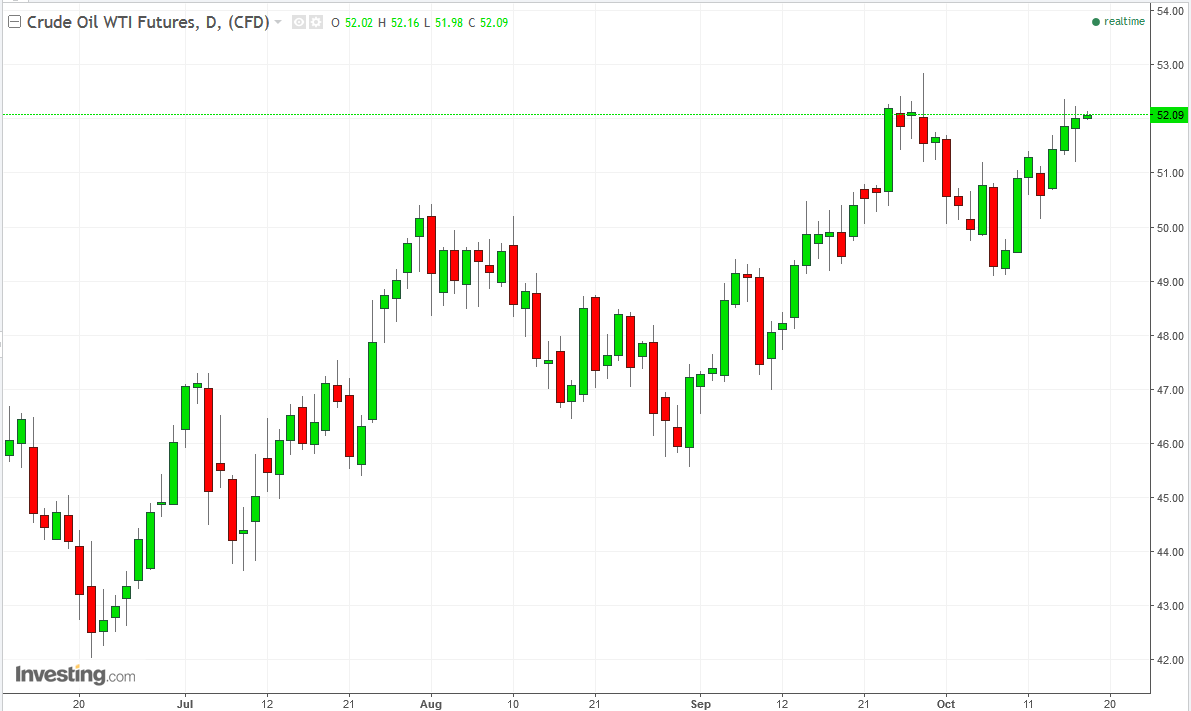Oil prices jumped in after-hours trading on Sunday night and Monday morning when Iraqi militia forces invaded the Kurdish-held, oil-rich city of Kirkuk. The expectation was that the flow of oil out of northern Iraq would be disrupted as Iraqi troops fought to take control of oil fields near the city. Initial reports claimed that the flow, at a rate of 350,000 bpd of oil, was briefly cut off during the fighting, but this was disputed by later reports.

When markets opened in the U.S. on Monday morning it became clear that northern Iraq’s oil production and movement had not been disrupted and oil prices declined from earlier highs. Turkey reported that 350,000 bpd of oil is still being sent from northern Iraq to Turkey’s Ceyhan port, which is about what it should be. Oil tanker movement from Ceyhan also indicates that the flow of oil has not been interrupted.
The real risk to Iraqi oil at this point is not a sudden disruption in production, but rather the gradual growth of Iranian influence over Iraq’s oil resources. Iranian IRGC forces and other Shi’a militia are playing a prominent role in the Iraqi government as it attempts to consolidate control over the country and its oil. Petroleum from northern Iraq will apparently continue to reach markets in the short-term no matter who controls the oil fields, but the real story will be the degree of Iranian influence over Iraq’s oil policy in the long-term. A united Iraq and Iran could threaten the Gulf-Arab coalition that has long presided over OPEC.
In addition, some traders also took news of an offer by Chinese interests to privately purchase 5% of Aramco as a bearish sign. Apparently, some traders believe that Saudi Arabia will abandon its efforts to slowly push oil prices up to the $60 per barrel range if Aramco halts its plans for an IPO.
There is no indication that Aramco is leaning toward a private sale instead of a public offering. Yet even if it did end plans for an IPO in favor of a private sale, a private sale would not signify a return to Saudi Arabia’s all-out-production policy. Saudi Arabia remains committed to the OPEC—non-OPEC production cuts through March 2018, and investors should not expect the Saudis to deviate from this commitment.
